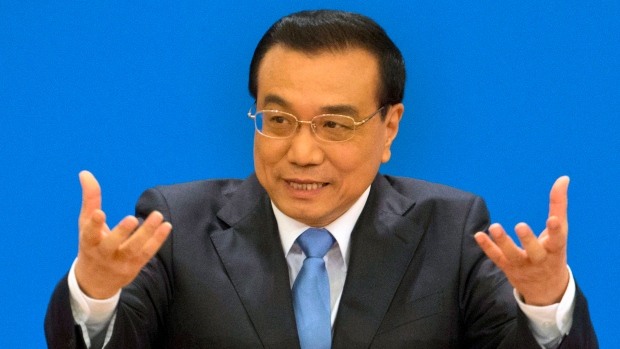Sep 19, 2018
China won't devalue yuan to boost exports, premier Li says
Bloomberg News

China won’t devalue its currency in order to make its exports more competitive amid the trade war with the U.S., Premier Li Keqiang said, hours after his country retaliated against the latest increase in tariffs by the Trump administration.
“Recent fluctuations in the renminbi exchange rate have been seen as an intentional measure, but that isn’t true,” Li said in a keynote speech at the World Economic Forum in Tianjin on Wednesday. “One-way devaluation will do more harm than good to China’s economy. China will by no means stimulate exports by devaluing the yuan.”
The offshore yuan rose 0.15 per cent after the comments, buying 6.8509 per U.S. dollar as of 11:24 a.m. in Hong Kong.
Li’s comments come as trade tensions with the U.S. escalate, with both sides pledging to impose new tariffs from next week, threatening to worsen the slowdown of China’s economy. While policy-makers have implemented easing measures ranging from tax cuts to central-bank liquidity injections, they have refrained from broad-based fiscal or monetary stimulus for now.
Li said that policy makers are currently facing more difficulty in keeping stable economic progress, and will now make greater efforts to prioritize employment. The government is also seeking ways to further cut taxes and fees, he said, while the central bank will stick with “prudent” monetary policy.
China has accelerated the pace of financial opening this year, seeking to lure more foreign investment as the yuan weakens and threats to output increase. Growth in the world’s second-largest economy is forecast to slow this year to 6.6 percent, slightly higher than the official target.
